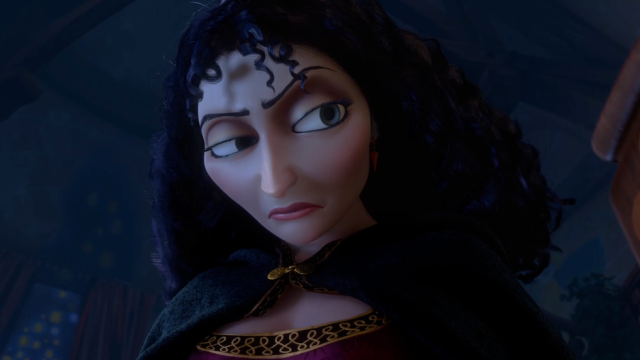“And sin, young man, is when you treat people like things. Including yourself. That’s what sin is.”
—Granny Weatherwax, Carpe Jugulum
It’s really little wonder that people in fiction generally believe in the power of choosing their own destinies—sometimes even in cultures where people don’t believe you can do that. After all, the writers of fiction probably aren’t living the lives they were expected to; they’ve chosen to write instead of working on farms or in factories or in some other way having a “normal” job. This is even more obvious in Hollywood, where people come from all over the world for the chance—the absolutely tiny chance—to make it big.
A lot of the time, therefore, villains are people who take away the main character’s control over their own lives in some way. True, the witch from the classic story of Rapunzel has always been that. How much more, though, Mother Gothel of Tangled, who tries to make Rapunzel think it’s all for her own good? In Misery, Annie Wilkes does what she does because she doesn’t think her favourite author should write anything but books she likes. In Coraline, the Other Mother wants the children to love her and her only, forever and always.
Even when it isn’t explicitly the villain, there is often a theme of yearning to make your own choices. It is only when Princess Anne takes control of her royalty and is no longer treated as a child in Roman Holiday that she grows up, and if it isn’t entirely a happy ending, well, it’s as happy an ending as we’re going to get. Triton screws up and sends Ariel directly to Ursula by not letting her be her own person in the Disney version of The Little Mermaid. In Harvey, Veta is really trying to do her best by her brother Elwood, but she still wants him to be normal to her own way of thinking.
Even some of our strongest tropes are about people trying to control others. Sure, it’s often on a macro scale, as it were—how many Westerns are built on the idea of a man trying to control an entire town? And of course that has influenced a lot of crime movies, not to mention media from all over the world that’s based on Westerns or inspired by them. There’s also The Jazz Singer and all other variations of the kid being forced to follow in the parent’s footsteps. Many, many variations of “the girl’s parents want her to stay a child in some way.” Come to that, Elwood is something of an archetype for a lot of characters treated as mentally ill for just being outside the normal in some way.
Now, when it’s the villain, the story needs them to not get their way. Obviously. Mother Gothel is wrong to keep Rapunzel in a tower. Annie Wilkes is wrong to imprison Paul Sheldon. The Other Mother is wrong to trap children’s souls. And so forth. However, their choices take choice away from others. The rule is that you control your own life and your own choices, and anyone trying to prevent you from doing that—no matter how much they love you—is wrong. Even if choosing your job or your partner or your health makes someone else unhappy, you can’t always sacrifice yourself for them.
It’s your life and your choice. Obviously there’s no such thing as a choice that doesn’t affect anyone else. But as long as the choice is about your body and your life, it’s your choice. As I told my son, I can’t even be called on to make certain sacrifices for him, and he’s my own child. Which got into a discussion of genetics, because I don’t know his blood type. Still, he was able to understand the idea that he can’t force me to give up my blood for him even if my blood won’t kill him, which I can’t technically be sure of.
Choose to support those who need it. Also maybe my Patreon or Ko-fi!

